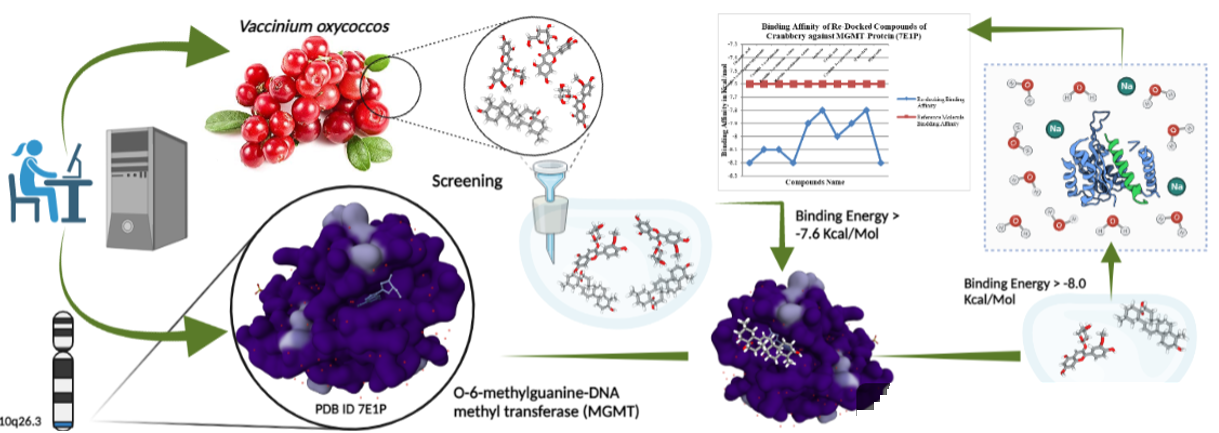Natural O-6-methylguanine-DNA methyl transferase (MGMT) gene antagonist from Vaccinium oxycoccos: A new hope in Alzheimer’s therapeutics

Keywords:
MGMT gene, Alzheimer’s disease, β-amyloid, Cranberry compounds, NeurodegenerationAbstract
Alzheimer's disease (AD) is a neurodegenerative illness with a complex pathobiology. The pathogenesis of Alzheimer's disease is majorly driven by mutation, overexpression and downregulation of β-amyloid (Aβ) gene that results in the aggregation of a β-amyloid (Aβ) protein within the neocortex. O-6-methylguanine-DNA methyl transferase (MGMT) gene coding for a DNA repair enzyme have found to play an important role in Alzheimer's disease. Some researchers have reported that Tau protein disintegration is directly tied to MGMT gene. An unavoidable, age-related increase in brain methylation of MGMT gene have shown to upregulate MGMT expression, resulting in Tau dysfunction. Due to the complex underlying pathology of Alzheimer disease (AD), treatment strategies are under extensive research as no new therapies have been approved by the US Food and Drug Administration (FDA) since 2003. Drug repositioning/molecular docking have appeared to be successful techniques to fasten the pharmacological research for AD treatment. In light to the same the study was aimed to evaluate various natural compounds from Vaccinium oxycoccos (cranberry) that are antagonist to MGMT gene. MGMT gene and Compounds structure was retrieved from PDB and PubChem databases and were screened for suitable interactions between them. Out of 23 compounds, four demonstrated strong binding affinity to MGMT gene and thus predicted to use as MGMT gene antagonist in developing the treatment for Alzheimer's disease (AD). These findings may be applicable to other degenerative diseases also where MGMT gene interactions have been involved.
URN:NBN:sciencein.cbl.2023.v10.549



